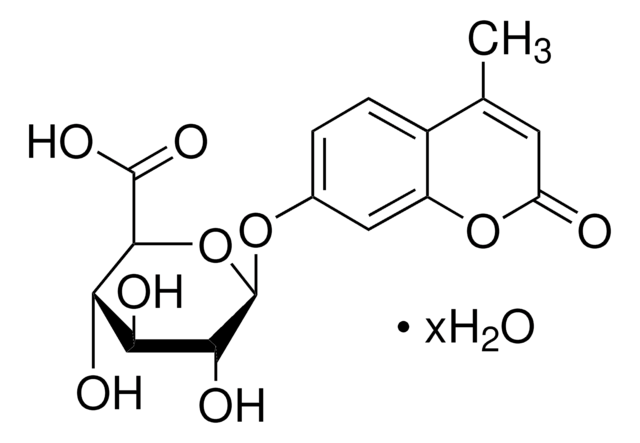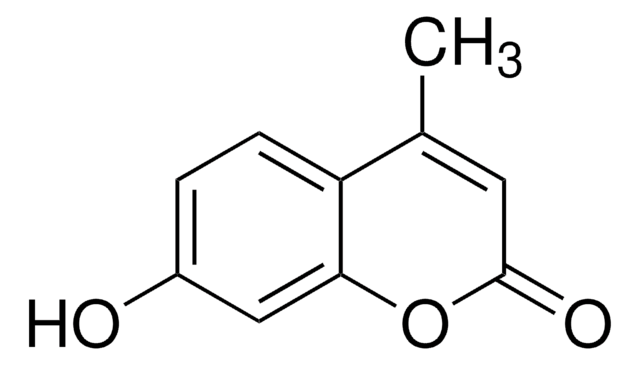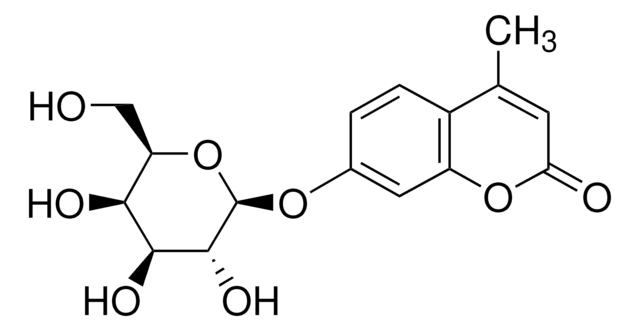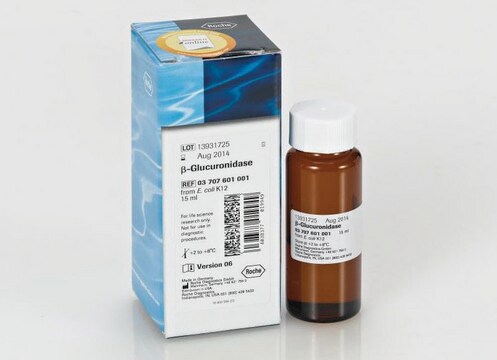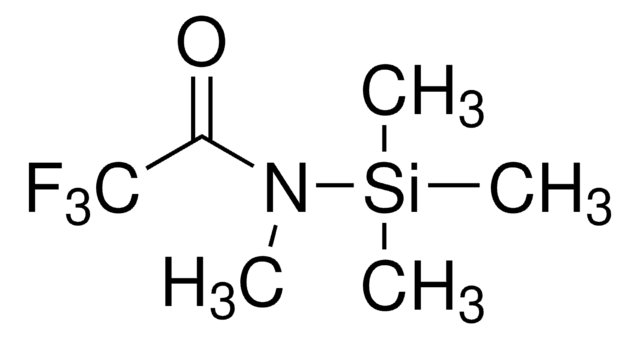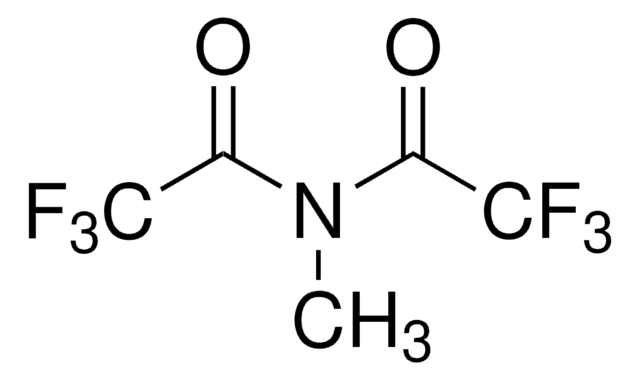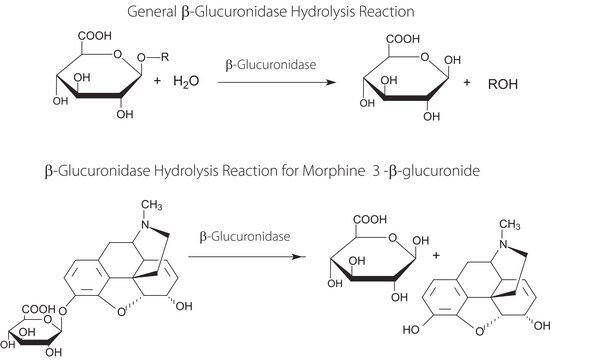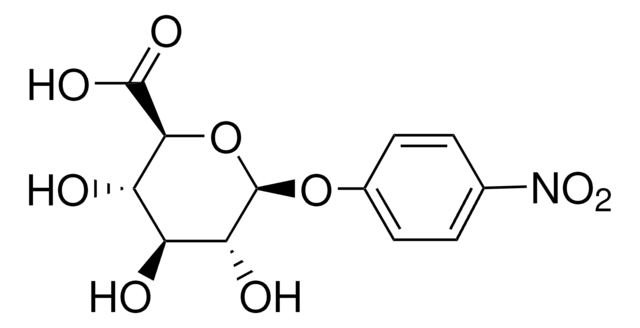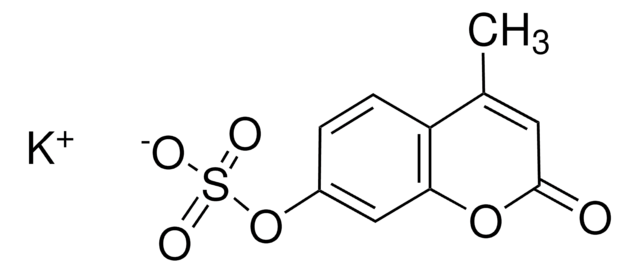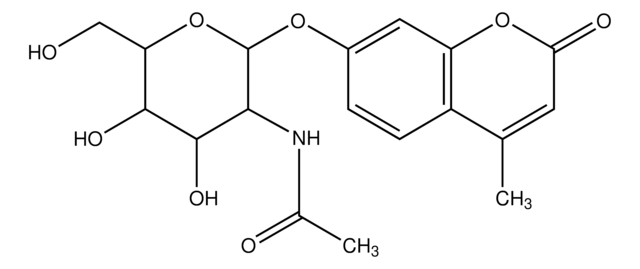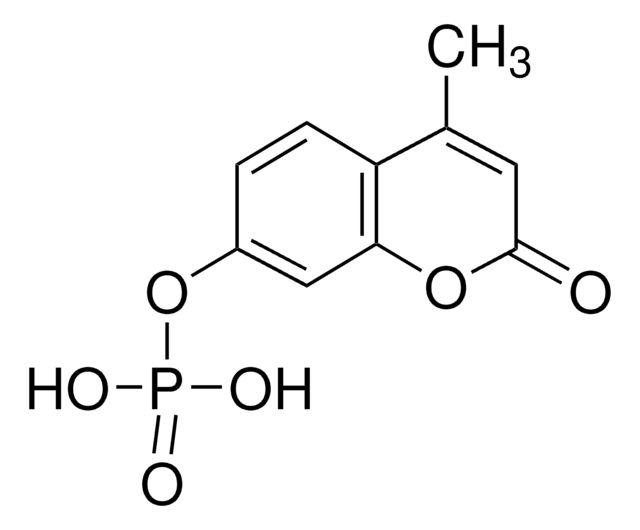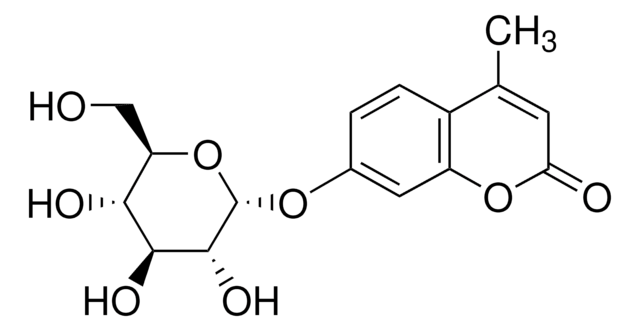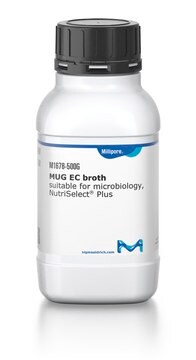M9130
4-Méthylumbelliféryl-β-D-glucuronide hydrate
≥98% (HPLC), BioReagent, for identification of transformed plants
Synonyme(s) :
Acide 4-méthylumbelliféryl-β-D-glucopyranosiduronique, MUG
About This Item
Produits recommandés
Qualité
for molecular biology
Gamme de produits
BioReagent
Essai
≥98% (HPLC)
Forme
powder
Solubilité
pyridine: 50 mg/mL, clear, colorless to very faintly yellow
Température de stockage
−20°C
Chaîne SMILES
O.CC1=CC(=O)Oc2cc(O[C@@H]3O[C@@H]([C@@H](O)[C@H](O)[C@H]3O)C(O)=O)ccc12
InChI
1S/C16H16O9.H2O/c1-6-4-10(17)24-9-5-7(2-3-8(6)9)23-16-13(20)11(18)12(19)14(25-16)15(21)22;/h2-5,11-14,16,18-20H,1H3,(H,21,22);1H2/t11-,12-,13+,14-,16+;/m0./s1
Clé InChI
URVSQZMOFUEQAW-YYHOVTOASA-N
Vous recherchez des produits similaires ? Visite Guide de comparaison des produits
Description générale
Application
Reconstitution
Produit(s) apparenté(s)
Code de la classe de stockage
11 - Combustible Solids
Classe de danger pour l'eau (WGK)
WGK 3
Point d'éclair (°F)
Not applicable
Point d'éclair (°C)
Not applicable
Équipement de protection individuelle
Eyeshields, Gloves, type N95 (US)
Faites votre choix parmi les versions les plus récentes :
Déjà en possession de ce produit ?
Retrouvez la documentation relative aux produits que vous avez récemment achetés dans la Bibliothèque de documents.
Les clients ont également consulté
Articles
Today, diverse studies report the benefits of probiotics, such as inhibitory effects on pathogens, aid in the management or prevention of chronic intestinal inflammatory diseases or atopic syndromes, and support to the immune system. Potential beneficial applications abound, researchers continue to evaluate the effictiveness and clarify the mechanisms of action of probiotics.
Notre équipe de scientifiques dispose d'une expérience dans tous les secteurs de la recherche, notamment en sciences de la vie, science des matériaux, synthèse chimique, chromatographie, analyse et dans de nombreux autres domaines..
Contacter notre Service technique